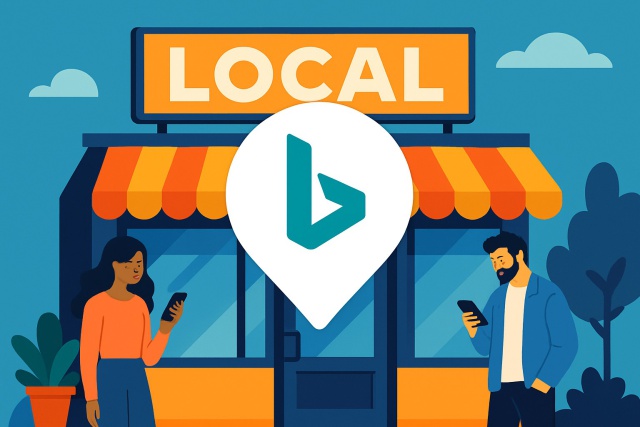Building Local SEO Citations for Small Business Success


Local SEO citations are a big deal for small businesses trying to boost their visibility in local search results. When your business shows up reliably across different platforms these citations help build trust with customers and give your search rankings a nice boost. They also attract potential clients from your own neighborhood.
So, What Exactly Are Local SEO Citations?
Local SEO citations are online shout-outs that mention a business's name, address and phone number—what the pros call NAP. You’ll find these nuggets scattered across business directories, social media profiles, websites and other corners of the internet.
- Double-check that your business name is spot on and remains consistent throughout. It’s the little things that count, after all.
- Include a clear physical or mailing address since nobody likes playing hide and seek when trying to find you.
- Provide a phone number with the right area code so calls land where they’re meant to and don’t get lost in some mysterious void.
- Link to your official website URL because it’s your digital handshake with potential customers.
- Pick a business category that truly matches your services since this isn’t the time for a square peg in a round hole.
- Toss in extra details like hours of operation or customer reviews. These little touches can really boost your credibility and make you feel a bit more human to your audience.
Many individuals assume that only the heavy hitters like Google or Yelp really count when it comes to citations but honestly, those smaller niche directories and local sites can punch way above their weight in boosting your presence. Plus, it’s a common misconception that citations only hold water for big companies.
The Importance of Local SEO Citations for Small Businesses When it comes to getting noticed in your own backyard, local SEO citations are like your business’s digital handshake firm, memorable, and downright necessary. Small businesses, in particular, can really reap the benefits of these citations since they help put you on the map (literally) for potential customers nearby. Think of it as planting a flag in the vast internet landscape, so individuals know you’re the real deal, right around the corner. From boosting your search engine credibility to making sure your name, address, and phone number are consistent everywhere, citations quietly work behind the scenes to drive more foot traffic and clicks your way. And yes, while it might feel a bit like dotting every i and crossing every t with these listings, it’s one of those small efforts that pay off in a big way like a little boost that keeps nudging your business forward.
Citations play an important role in how search engines like Google size up local businesses. Having a good number of consistent citations often gives your business’s credibility a boost which can help nudge your spot higher in local search results. On the flip side, if your address or phone number ends up all over the place across different listings, search engines can get confused and might ding your rankings.
Local SEO citations are kind of like your business’s word-of-mouth, but on the vast internet stage. Just like a friend’s recommendation makes you trust a place more, seeing your business name pop up consistently across different sites gives your reputation a solid boost. It’s a subtle nudge that helps nearby customers stumble upon you more easily when they’re hunting for exactly what you bring to the table.
Different Types of Local SEO Citations You Should Know About
Local SEO citations usually come in two flavors: structured and unstructured. Structured citations are neat business listings you find on directories and platforms like Google My Business or Yelp where everything follows a predictable format. Unstructured citations are more casual. They are mentions of your business across blogs, news articles and social media posts that don’t stick to a formal template.
- Google My Business stands out as the go-to structured citation for countless local businesses because it is like their online home base.
- Yelp doesn’t just share customer reviews; it ranks businesses by category to help people find the best options.
- Yellow Pages still holds influence, especially for niche local spots and industry-specific listings that should not be overlooked.
- Facebook Business Pages offer a great way for businesses to get social and engage directly with potential customers while building a loyal following over time.
- Local news articles that mention your business act as unstructured citations that boost your presence without much attention.
- Blogs and event sites that mention your name often work wonders for increasing local relevance by creating buzz in the right circles.
A Friendly Step-by-Step Guide to Nailing Local SEO Citations
Building and maintaining local SEO citations calls for a keen eye and patience. Start by checking where your business already appears, fix any slip-ups you find, and then slowly expand your presence on the platforms that matter.
Give all your current citations a thorough once-over to spot where your business pops up online.
Tackle any outdated or inconsistent details like old phone numbers or addresses.
Zero in on high-value citation sites that fit your industry and local scene. Quality over quantity works wonders here.
Claim any existing listings you find or create new ones on these important platforms so you don’t miss out.
Double-check that your NAP (Name, Address, Phone) info is spot-on and matches across the board because consistency is key.
Boost your citations by adding photos, a clear business description, and details about what you offer.
Set up a regular check-in routine to keep your citations fresh and accurate because letting things slide is never a good idea.
Citation audits usually deliver the best results when you mix hands-on manual checks with the help of digital tools. Duplicate or conflicting listings can really throw a wrench in the works, leaving both customers and search engines scratching their heads.
Key Tips for Navigating the Local SEO Citations Maze
- Keep your NAP (name, address and phone number) details accurate and consistent every single time. This small detail can make a big difference.
- Choose the business category that fits perfectly to avoid confusing search engines and potential customers.
- Add clear high-quality photos and detailed descriptions to make your listings stand out and catch attention.
- Make it a habit to check your citations regularly so you can spot and correct outdated or incorrect information before it becomes a problem.
- Encourage your happy customers to leave reviews because they are invaluable for building trust and boosting your credibility.
- Stay away from spammy listings or fake citations since they usually harm your reputation more than help it.
Managing citations is one of those ongoing tasks that quietly packs a punch in a solid local SEO strategy. It not only boosts your business's credibility but also keeps your details fresh and accurate—because nobody likes outdated info lurking around. Toss in some savvy review management and a well-tuned Google My Business profile.
Typical Challenges and How to Tackle Them Like a Pro
Small business owners often face challenges like inconsistent data across various platforms and duplicate listings popping up. Updating citations every time they move shop is also a headache. When you are juggling citations for businesses with multiple locations or franchises, things can quickly get tangled up.
- Information that differs from one listing site to another, often causing a fair bit of confusion.
- Duplicate listings that not only dilute SEO power but also leave search engines scratching their heads.
- Business moves or changes in hours that don’t get updated online fast enough, which can throw customers off.
- Limited time or SEO savvy to keep citations fresh and accurate—something I’ve seen trip up plenty of individuals.
- Navigating the tricky maze of citations for franchises or multiple store locations usually turns out to be quite the headache.
Tackling these challenges usually pays off by leaning on citation management services or just passing the baton to the pros. Tools like Moz Local can make updating and auditing feel almost effortless, saving you a chunk of time while keeping your citations both accurate and on point.
Understanding How Local SEO Citations Can Nudge Your Results in the Right Direction
Keeping tabs on how well your citation efforts are paying off is important if you want to truly measure their return on investment. Watch for bumps in your local search rankings to see if your business is moving up the ladder in Google Maps or organic search results. Pay close attention to your website traffic, especially visits coming from local searches because those often matter most. And of course, add up the number of leads and calls coming through your local listings since those small numbers tell a bigger story.
| Metric Name | What It Measures | How to Track It | Why It Matters |
|---|---|---|---|
| Local Search Ranking | Where your business shows up in local search results | Use reliable rank tracking tools like Mangools KWFinder or Semrush | Nailing higher rankings usually means more eyes on your business from nearby customers |
| Website Traffic | The number of visitors coming from local searches | Dive into Google Analytics reports to see referral and organic traffic details | More visitors often signal stronger interest and engagement from your local crowd |
| Leads Generated | Phone calls and contact form submissions from listings | Keep an eye with call tracking tools and CRM records | These leads are the lifeblood of sales and ultimately the growth of your business |
| Citation Consistency | How accurate and uniform your NAP details appear across listings | Run citation audits with tools like Moz Local or do a hands-on manual check | Keeping your info consistent builds trust with both customers and search engines alike |
| Customer Reviews | The quantity and quality of reviews from local customers | Monitor via Google My Business dashboard and other review tools | Positive reviews don’t just boost your rep—they give your local rankings a nice little push |
Building local SEO citations regularly goes hand in glove with other key local SEO tactics like collecting positive customer reviews and landing quality backlinks. It also involves giving your Google My Business profile a thorough tune-up.

A small business owner actively managing local SEO citations and checking search ranking maps on a laptop
Frequently Asked Questions
How many local SEO citations does my small business need to see results?
There isn’t a magic number carved in stone but aiming for about 30 to 50 quality citations is usually a solid place to start. This should cover the big players like Google My Business and Yelp plus some relevant niche or local directories that fit your business like a glove. The real game-changer? Consistency—your NAP details need to be spot-on and exactly the same across every listing. Honestly, even a smaller batch of well-maintained citations can do wonders if they’re accurate and truly connected to your industry.
What’s the fastest way to fix inconsistent citations across different platforms?
Start by running an audit with tools like Moz Local or BrightLocal to sniff out any inconsistencies. Next, roll up your sleeves and update the major directories yourself—think Google, Facebook and Yelp first. After you’ve tackled those, citation management services can help sync up the smaller sites. Focus on platforms that bring in the most visitors or carry strong authority to see quicker wins without losing your mind.
Can I create citations myself, or should I hire a professional?
If you’re only juggling a handful of listings, DIY is totally doable—there’s even a handy step-by-step guide in this article to keep you on track. But if you’re dealing with multiple locations, running a franchise or just strapped for time, bringing in an SEO agency or tools like Whitespark can be a real time-saver and help dodge costly mistakes. You’re probably looking at budgeting between $50 and $200 per month for those pro services which, depending on your situation, might be worth every penny.
Do citations still matter if I don’t have a physical storefront?
Absolutely. Service-area businesses like plumbers or freelancers can benefit just as much. Instead of a PO box use a mailing address or focus on industry-specific directories that fit your niche. And don’t overlook unstructured citations—things like guest blog posts or event listings can help build your credibility even without a physical location. It’s a bit like planting seeds in a digital garden—you might not see all the roots but the growth is real.
How long does it take for local SEO citations to improve my rankings?
Usually you can expect to start seeing noticeable improvements anywhere from two to six months since search engines need time to crawl and verify your citations. Of course the clock can run faster or slower depending on the quality of your citations, how fierce the local competition is and how quickly you get those inconsistencies ironed out. Pairing citations with solid reviews and sprucing up your Google My Business profile tends to put the pedal to the metal.
Are free citation directories as effective as paid ones?
Most free directories like Google, Bing and Apple Maps are still must-haves in your toolbox. Paid platforms, especially niche ones, can give you a little extra nudge in visibility but aren’t exactly essential. The real trick is keeping everything accurate and relevant—watch out for low-quality paid sites that promise the moon but barely deliver. Services like Yext make managing paid listings easier, sure, but they don’t replace the good old-fashioned work of building citations naturally and steadily.
Unleash Your SEO Prowess with Semrush
Are you struggling to boost your online visibility and drive more traffic to your website? Semrush is the ultimate SEO and digital marketing tool that can take your Internet Marketing game to new heights. With its powerful suite of features, you can gain a comprehensive understanding of your market, optimize your content, and outrank your competitors.
- Uncover Profitable Keywords with Advanced Research
- Analyze Your Site's Health with Detailed Audits
- Monitor Backlinks and Stay Ahead of Competitors
- Streamline Content Creation with Insights and Trends








